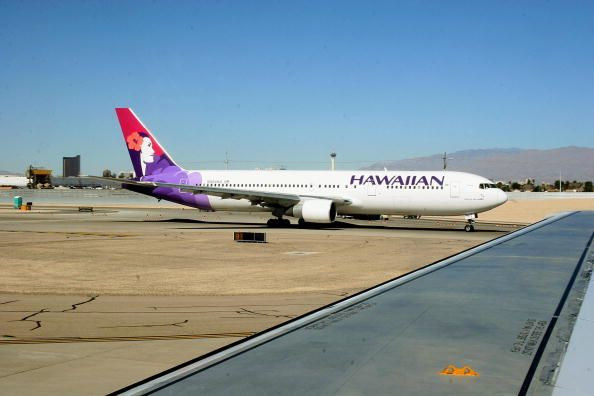Hawaiian Airlines Raises Bag Fees To Match Rivals

Since late August, U.S. airlines have raised their checked bag fees one after the other. By the end of October, Hawaiian Holdings (NASDAQ:HA) subsidiary Hawaiian Airlines was one of the last remaining holdouts -- with the notable exception of Southwest Airlines (NYSE:LUV), which is sticking with its popular "bags fly free" policy.
This article originally appeared in the Motley Fool.
For a while, it seemed like Hawaiian might be reluctant to raise its baggage fees due to the impending arrival of Southwest Airlines in Hawaii. However, Hawaiian Airlines announced this week that it is matching its other rivals' bag fee increases on mainland-Hawaii routes.
A new standard for baggage fees
Until recently, most U.S. airlines charged $25 for the first checked bag and $35 for a second checked bag on domestic routes. However, over the span of a month beginning in late August, four of the top six U.S. airlines raised their checked bag fees to $30 for the first bag and $40 for the second.
Aside from Southwest Airlines, Alaska Air (NYSE:ALK) was the only one of the six largest carriers that hadn't adjusted its bag pricing as of the end of September. That made it hard for Hawaiian Airlines to raise its baggage fees, because Alaska is arguably its closest competitor. Indeed, Alaska Airlines flies to Hawaii from eight of Hawaiian's 12 mainland gateway cities: Seattle, Portland, Sacramento, Oakland, San Francisco, San Jose, Los Angeles, and San Diego.
However, in mid-October, Alaska Airlines matched the legacy carriers' $5 bag fee increases, effective Dec. 5. That paved the way for Hawaiian Airlines to follow suit.
Hawaiian Airlines announces new baggage fees
On Tuesday, Hawaiian Airlines increased its first bag fee to $30 and its second bag fee to $40 for mainland-Hawaii routes. (Unlike Alaska Airlines, it is implementing the new fees immediately.) This harmonizes Hawaiian's pricing for checked baggage with that of its major rivals.
Elite-level frequent fliers and holders of Hawaiian Airlines' co-branded credit cards will continue to receive special baggage allowances. Additionally, customers on Hawaiian's international flights will still be allowed to check two bags free of charge.
More interestingly, Hawaiian Airlines is maintaining its special baggage pricing for interisland flights. Members of the carrier's (free) frequent flyer program pay just $15 for the first checked bag and $20 for the second checked bag. First and second checked bag fees for non-members will stay at $25 and $35, respectively.
A small way to bolster unit revenue
Once all of its larger peers -- other than Southwest -- had decided to raise their checked bag fees, there wasn't much point to Hawaiian Airlines standing pat. Travelers who care a lot about baggage fees are going to gravitate toward Southwest Airlines when it starts flying to Hawaii, regardless of whether Hawaiian charges $25 or $30 to check a bag. For all other travelers, Hawaiian would be leaving money on the table by charging below-market checked bag fees.
Higher baggage fees may help Hawaiian Airlines reverse a string of recent unit revenue declines in the mainland-Hawaii market. Last quarter, Hawaiian's revenue per available seat mile plunged about 10% on those routes due to overcapacity.
Of course, the unit revenue impact of higher baggage fees alone will be fairly modest. An extra $5 isn't much compared to the fares Hawaiian charges for mainland-Hawaii flights, which are typically more than $200 one-way. However, Hawaiian Airlines can use all the help it can get. Furthermore, bag fees are a stable source of revenue that isn't subject to big swings based on competitive dynamics.
Fortunately, Hawaiian Airlines will face easier year-over-year comparisons next year, and the completion of its ongoing fleet transition should also help stabilize unit revenue. And with unit costs trending in the right direction and oil prices finally pulling back, 2019 is shaping up to be another solid year for Hawaiian Holdings.
Adam Levine-Weinberg owns shares of Alaska Air Group, Hawaiian Holdings, and Southwest Airlines. The Motley Fool owns shares of and recommends Southwest Airlines. The Motley Fool recommends Alaska Air Group and Hawaiian Holdings. The Motley Fool has a disclosure policy.




















